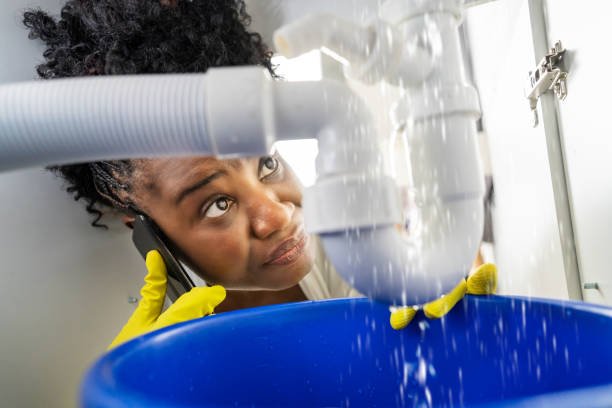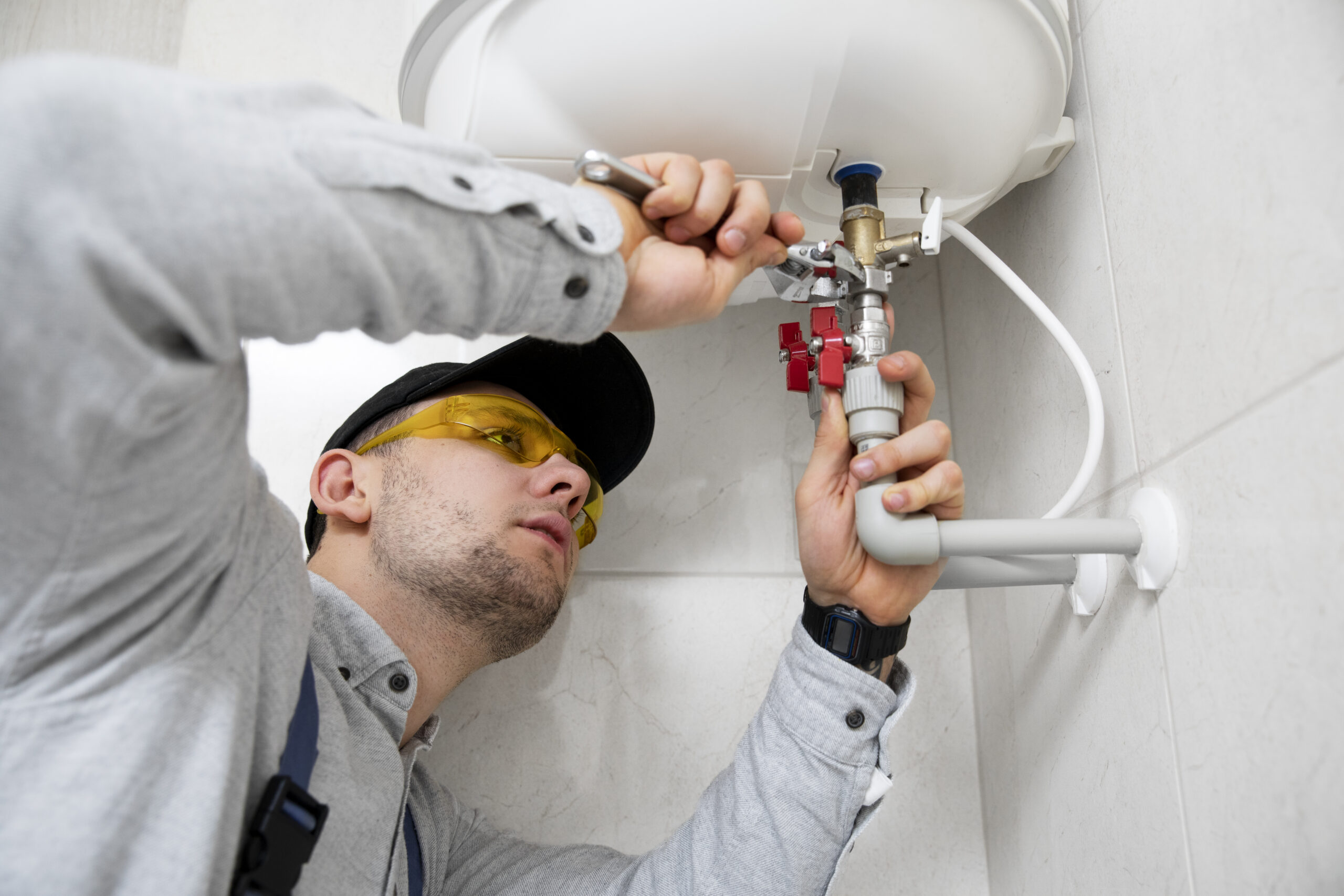Quick Solutions for Emergencies Until Support Arrives
Quick Solutions for Emergencies Until Support Arrives
Blog Article
Have you been in search of know-how about What to Do During a Plumbing Emergency?

Pipes emergency situations can strike at any time, creating tension and potential damages to your home. Whether it's a ruptured pipe, a clogged drainpipe, or a leaking faucet, recognizing exactly how to manage the scenario up until a professional plumbing technician shows up can save you from more problems. This article gives necessary emergency pipes suggestions to aid you minimize damage and regain control throughout a plumbing situation.
Shut off the Water Supply
The very first step in any type of pipes emergency is to shut down the supply of water. For localized problems, such as a leaking tap or toilet, switch off the valve near the component. In the case of a significant leak or ruptured pipe, situate your home's main water shut-off shutoff and turn it off quickly. Knowing the place of these valves ahead of time can save valuable time during an emergency.
Address Tiny Leaks with Short-lived Repairs
Small leakages can rapidly come to be considerable problems if left untreated. Use these short-lived repairs till expert aid shows up:
While these repairs aren't irreversible, they can help decrease water loss and damage.
Unclog Drains Pipes Securely
A blocked drainpipe can be an aggravating and untidy concern. Right here's just how to tackle it:
If these techniques do not function, avoid utilizing extreme pressure, as it might worsen the blockage.
Manage Overflowing Toilets
An overflowing toilet can cause immediate mayhem. Right here's what you must do:
Turn off Your Water Heater
In certain emergency situations, such as a ruptured pipeline, it's smart to turn off your water heater. This avoids getting too hot or damages to the device when water quits streaming. Turn off the power supply to the water heater (electrical or gas) and let it cool down to avoid possible risks.
Temporarily Stop a Burst Pipe
A burst pipeline can cause considerable water damage in mins. To alleviate the problem:
Call an expert plumber promptly to attend to the issue permanently.
Manage Frozen Water Lines Carefully
In cooler environments, frozen pipes are an usual emergency. If you suspect an icy pipeline:
Stop Further Damage
Taking fast action to decrease damage can conserve you time and money over time. Here's exactly how:
. Have an Emergency Plumbing Package
Prepare a basic plumbing emergency situation kit to manage small issues successfully. Your package ought to consist of:
Having these tools available can make a substantial distinction in your ability to manage emergencies.
Know When to Call a Specialist.
While quick fixes can aid temporarily, certain plumbing problems require prompt professional focus. Call a plumber if:.
Promptly getting in touch with a specialist makes certain the concern is dealt with properly and protects against further problems.
Conclusion.
Plumbing emergency situations can be frustrating, yet with the right expertise and tools, you can manage the circumstance efficiently up until assistance arrives. By turning off the water system, attending to tiny leakages, and making use of temporary fixes, you can reduce damage and keep your home safe. Keep in mind, these ideas are short-lived remedies; constantly consult a licensed plumbing to deal with the origin of the issue. Preparation and quick thinking are your best allies in any plumbing emergency.
8 Helpful Tips for Managing Plumbing Emergencies at Home
If your plumbing system hasn’t failed once, wait for it because almost everyone has a story to tell. Sometimes, it could be simple emergencies such as a leaking pipe, a blocked cistern, or even a big burst pipe. In situations like this, you need to have some handy tips to save you some money and from possible damages.
Take care of minor issues early.
Sometimes, you could have avoided an emergency by taking proactive measures while it was still early. Some major plumbing emergencies can be a result of an ignored minor issue. We recommend that you have items like plumbing tapes and other related items. A plumbing tape can allow you to manage minor leaks before the plumber arrives.
Cut off the water supply.
This tip is essential in almost any type of leakage problem. For problems like minor leakages in the toilet or kitchen, turn off the supply that takes water to the affected pipes. If the leakage is a major pipe, you must shut off the supply valve to the entire building. This will help you avoid flooding your home and neighbors if you share a flat.
Know your plumbing system
Folks typically move into a new apartment without understanding the water supply around the building. This can prove disastrous if a water emergency arises and the plumber is far away. The previous tip will prove useless if you don’t practice this one. More importantly, know where your water shut-off valve is located – you’ll need that knowledge to prevent potential home floods.
Have some common handy tools
There are lots of plumbing emergencies that you can handle without hiring a plumber. That’s why you must keep some tools available always. Some tools that you can use to fix simple plumbing emergencies easily include plumbing tapes, screwdrivers, thread seal tapes, plungers, pliers, tape measures, and rubber gloves.
Insulate your pipes from cold
You’ll save yourself from many plumbing expenses if you protect your water pipes from the cold. This is because of the harmful effects that cold weather can have on your pipes. During winter, your pipes can burst from being overly expected to freezing temperatures. So, make sure insulators are there to keep the pipes working correctly.
Avoid practices that will clog your toilet.
Many people indulge in practices that can damage the plumbing system of the entire building. One of these is when they use their toilet to dispose-off garbage. They flush all kinds of things, such as paper towels, bandages, hairs, female sanitary products, etc., down the toilet. This will block your toilet in the long run, incurring unnecessary expenditures. Dump such waste in the trash instead.
Check your dials regularly.
Sometimes, there could be leakages in your home without noticing them in time. So, constantly monitor your water meter dial. If the dial is reading when there is nobody using water, this is an indicator that there is leaking. Check for leaks immediately. Call a plumber as soon as possible if you can’t find any.
https://www.constructionplacements.com/8-helpful-tips-for-managing-plumbing-emergencies-at-home/

I am just very interested by What to Do During a Plumbing Emergency and I am praying you enjoyed the piece. Remember to take the time to promote this blog posting if you liked it. Many thanks for your time. Kindly check our website back soon.
This Website Report this page